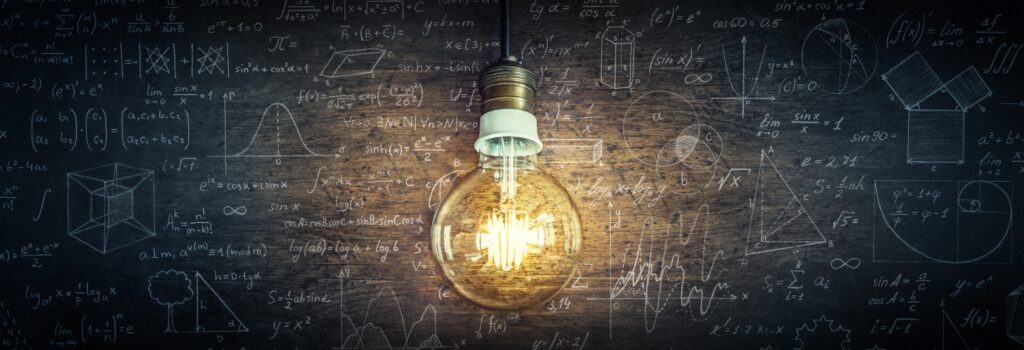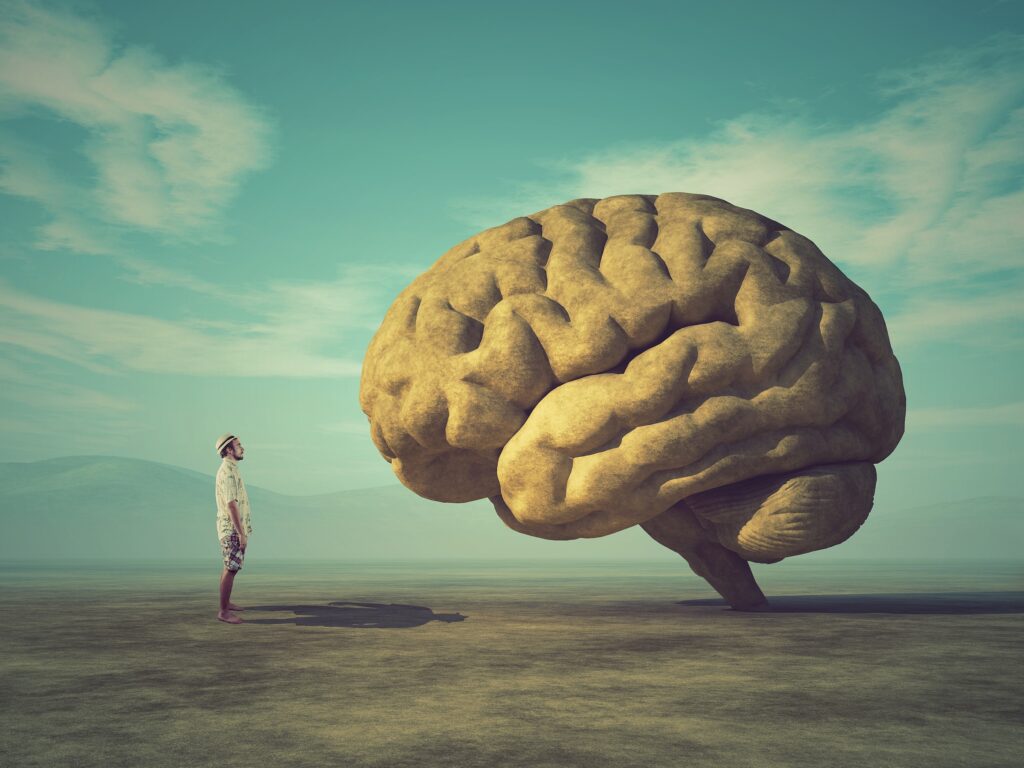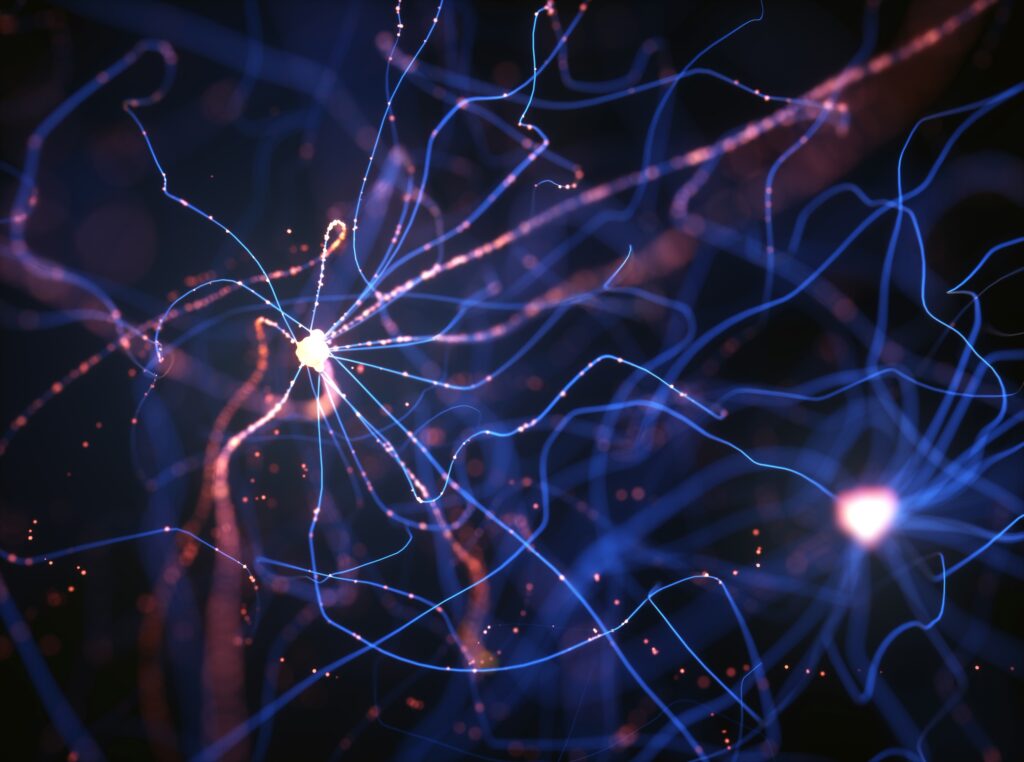The red herring of free will in objective idealism
Reading | Philosophy
![]() Bernardo Kastrup, PhD, PhD | 2023-08-06
Bernardo Kastrup, PhD, PhD | 2023-08-06

At the level of universal subjectivity, the question of free will is a meaningless red herring, argues our executive director. The meaning of life has nothing to do with making free choices, but bearing witness and paying attention to the dance of existence. Only when one truly grasps this, can one be free in the only true way: the freedom to allow oneself to be what one cannot help but be, and to choose to do what nature demands.
The question of free will is one of the most significant in metaphysics, if popular interest is the measure to go by. We deeply care about whether our choices are free or determined a priori, for we feel that the meaning of life itself hangs on the answer. A life in which pre-determined choices are simply played out, like a theatrical play in which a pre-written script is followed, cannot possibly be a meaningful one—or so we tend to think. And since mainstream physicalism denies free will, other metaphysical approaches—such as the different formulations of objective idealism—are often seen as the saviors of free will.
I have extensively discussed free will, from an idealist perspective, in Part 7 of my book Brief Peeks Beyond. In this brief essay, I shall merely summarize that argument. I shall maintain that the very concept of free will is a red herring that arises only from the metaphysical confusion underlying physicalism itself. When contemplated under the more coherent optics of objective idealism—of which my own Analytic Idealism is an instance—the very idea of free will turns out to be empty, semantically void; in other words, it means nothing. It’s not that free will doesn’t exist; it’s not that it does exist; and it’s not that free will and determinism are compatible (a position known as ‘compatibilism’). The problem is that the question itself makes no sense. It’s like asking whether the number 5 is married or single: the answer is not that it is or isn’t married, or that being single is compatible with being married, but that the question itself is wrong and there is no point in trying to answer it.
What do we mean by free will?
We must start by clarifying what we actually mean when we wonder whether we have free will. This is more nuanced than most people realize, for many would say that our choices are free only if they aren’t determined. The problem is that processes that aren’t determined are necessarily random. Yet, a free choice is not a random choice, is it? That’s not what we mean by free will. Our choices are free if they are determined by our preferences, tastes, judgments, dispositions, etc.
What we thus mean by free will is whether our choices are determined by us, as opposed to an external agency. My choices are free if they are determined by me, instead of my boss, the weather, the economy, or even the neuronal activity inside my head, none of which I think of as myself. A free choice is not the opposite of a determined choice; indeed, a free choice is always determined, but determined by that which we identify with. And what we identify with is our subjectivity. Choices determined by our subjectivity are free, while choices determined by agencies outside our subjectivity aren’t.
Mainstream physicalism maintains that our subjectivity is individual because it is somehow generated by the neuronal activity inside our head. This supposed individuality of subjectivity is what gives rise to the whole question of free will: individual subjectivity is but a subset of nature, and thus choices determined but natural states that aren’t in the subset aren’t determined by us; they aren’t free.
Free will under objective idealism
Under objective idealism, however, subjectivity is the foundation of reality; it is the one thing that exists irreducibly. Everything else—all experiential states in nature—are merely patterns of excitation of this fundamental subjectivity, just as different musical notes are patterns of vibration of one and the same guitar string. Under objective idealism, subjectivity is not individual or multiple, but unitary and universal: it’s the bottom level of reality, prior to spatiotemporal extension and consequent differentiation. The subjectivity in me is the same subjectivity in you. What differentiates us are merely the contents of this subjectivity as experienced by you, and by me. We differ only in experienced memories, perspectives and narratives of self, but not in the subjective field wherein all these memories, perspectives and narratives of self unfold as patterns of excitation; that is, as experiences.
As such, under objective idealism there is nothing outside subjectivity, for the whole of existence is reducible to the patterns of excitation of the one universal field of subjectivity. Therefore, all choices are determined by this one subject, as there are no agencies or forces external to it. Yet, all choices are indeed determined by the inherent, innate dispositions of the subject. In other words, all choices are determined by what subjectivity is.
Insofar as one sincerely identifies with universal subjectivity—as opposed to the particular memories, perspectives and narratives of self that we call the ‘ego’—there is a sense in which one could be said to have free will, as all choices are determined by that which one identifies with. But insofar as one identifies with a particular ego—a particular dissociated subset of the experiences unfolding in the one universal subject—one could equally be said to not have free will: we don’t choose what we desire; we don’t choose our preferences, tastes, fears, etc. Otherwise, someone serving a life sentence in solitary confinement would be the happiest person in the world: one would simply choose to desire precisely a lifetime of solitary confinement above all else. Sadly, no one can choose one’s own desires, and thus one’s will is, quite literally, not free. Our desires are determined by mental processes that far transcend the ego.
Desire versus necessity
But I want to help you see beyond this seeming contradiction, whereby there is a sense in which we have free will but also a sense in which we don’t. An Apollonian philosopher as I am, I want to leave you with clarity, not ambiguity. And for that, I need to help you see deeper than these precarious attempts to answer a question that has no meaning; to see, instead, that the question itself is senseless.
With this goal in mind, instead of framing the argument in terms of whether choices are determined by self or other, let’s reframe it in terms of desire versus necessity. This will help bring out the insight I am trying to communicate in this essay. Free choices are thus those determined by desire, while choices that aren’t free are determined by necessity. For instance, if you choose to go to work because you need the money, then the choice isn’t really free, for it isn’t determined by desire. On the other hand, when you choose a holiday destination you’re making a discretionary choice, guided by desire as opposed to necessity. After all, if you need to go somewhere on vacation, then it isn’t really a vacation, is it?
Desire and necessity are one
Now, as we’ve seen above, under objective idealism the one universal subject does what it does because it is what it is. All excitations of the universal field of subjectivity are driven solely by the field’s own intrinsic dispositions; what else could they be driven by? There is nothing external to the field that could impose on it a choice that didn’t come out of it. It was in this sense that the field could be said to have free will.
However, all of the field’s choices—all of its actions, dynamics, excitations—are dictated by necessity: the field’s own intrinsic dispositions. Insofar as the universal subject is what it is, it must do what it does; it just can’t help it. The only way to avoid this necessity would be for the field to, well, be what it isn’t, which has no meaning. The field can’t help but be what it is, and thus necessarily do what it does.
Nonetheless, is this necessity something other than desire? Why do we desire what we desire? Well, because we are what we are; and we can’t help but be what we are. We can’t choose to desire a life in solitary confinement because that’s not consistent with what we are, and there’s nothing we can do about it. Our desires are expressions of our intrinsic dispositions; they are determined and, therefore, necessitated by our very being. I want to eat the food I desire (as opposed to other foods), be with the woman I desire (as opposed to other women), do the job I desire (as opposed to other jobs), and so forth, because I am what I am (as opposed to something else).
The necessities entailed by our being are experienced by us as our desires. Allow me to repeat this, for it is the key point: the necessities entailed by our very being are our desires; this is what our desires are, have always been, and will always be: the manifestation of the necessities intrinsic to our being. This is why the question of free will is a meaningless red herring: it presupposes that necessity and desire are distinct—even dichotomous—things. Such a presupposition only makes sense under mainstream physicalism, according to which subjectivity is individual and multiple. The assumed individuality of subjectivity conjures up a world outside it, which, in turn, allows necessity (i.e., determinations arising outside one’s subjectivity) to be distinguished from desire (i.e., determinations arising from within one’s subjectivity).
But if subjectivity is unitary and universal, there is no inside/outside dichotomy. Therefore, desire is necessity, and necessity is desire. A desire is a necessity dictated from within, and a necessity is the inexorable outcome of an irresistible desire. This is what you must try to see so to realize that the whole discussion about free will is nonsensical under objective idealism. There is no fundamental distinction between necessity and desire. What the universal subject desires to do is what its intrinsic dispositions dictate; its desires are determined by what it is. And what the universal subject must do is what it desires irresistibly to do; it can’t desire otherwise because its desires, too, are dictated by what it is.
Mainstream physicalism creates illusory dichotomies of agency that give rise to the equally illusory distinction between desire and necessity. It conjures up the question of free will out of nothing but incoherent abstraction. And then—more perniciously—it suggests that the meaning of life itself is somehow contingent upon the answer to that illusory question.
I submit to you that the meaning of life has nothing to do with making ‘free’ choices, as if such freedom were somehow distinct from the necessity of making said choices. The meaning of life has to do with paying attention to what is going on, observing the dance of existence, taking it in, reflecting, bearing witness. This is humanity’s service to nature, not the egomaniacal delusion of individual agency. Only when you truly see this, will you be free in the only way that holds water: the freedom to allow yourself to be what you cannot help but be, and to choose to do what nature demands.

Essentia Foundation communicates, in an accessible but rigorous manner, the latest results in science and philosophy that point to the mental nature of reality. We are committed to strict, academic-level curation of the material we publish.
Recently published
Reading
Essays
Seeing
Videos
Let us build the future of our culture together
Essentia Foundation is a registered non-profit committed to making its content as accessible as possible. Therefore, we depend on contributions from people like you to continue to do our work. There are many ways to contribute.















